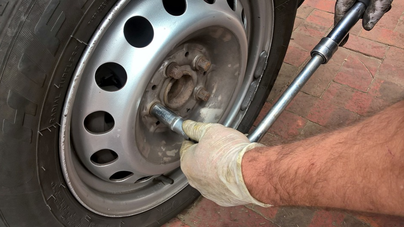Improve Your Drive: Top-Notch GMC Tires Service at Morris Tires
Improve Your Drive: Top-Notch GMC Tires Service at Morris Tires
Blog Article
Tire Service: The Influence of Weather
When it concerns ensuring optimal efficiency and safety on the roadway, understanding the effect of weather on tire solution is critical. From scorching heat to icy roads, each weather condition element can substantially affect tire functionality and overall driving experience. By delving right into the effects of varying climate condition on tires, chauffeurs can get useful understandings that may enhance their vehicle's efficiency and longevity. In this discussion, we will explore the elaborate connection in between climate problems and tire service, clarifying the importance of weather-specific tire maintenance practices and considerations.
Warm and Tire Efficiency
When revealed to high temperatures, tires experience adjustments in performance that can significantly influence lorry security and handling. The warm generated from prolonged driving or heat problems creates the tire rubber to soften, causing minimized step life and increased wear. As the rubber comes to be softer, the tire's hold when traveling decreases, influencing stopping distances and general grip. In severe cases, too much warm can also cause tire blowouts, posturing a severe safety threat to the automobile and its residents.

Cold Weather Condition Impacts
Cold climate conditions can have a considerable effect on tire efficiency and safety. In chilly weather condition, tires might likewise lose air stress a lot more rapidly, which can influence dealing with and fuel performance.
To mitigate the impacts of winter on tires, it is vital to on a regular basis check tire stress and inflate them to the manufacturer's advised degrees. Utilizing winter months or all-season tires created for cool climate problems can also improve traction and grip on icy or snowy roads. Proper tire maintenance, including normal inspections for wear and damage, becomes even much more important throughout colder months to ensure optimal performance and safety.
Rainy Conditions Effect
Tires with worn-out footsteps are more susceptible to hydroplaning, where a layer of water develops up in between the road and the tire surface, leading to loss of grip. To fight this, drivers must routinely evaluate their tires for appropriate tread deepness and think about spending in tires specifically created for wet conditions.
Additionally, rainy weather can additionally decrease exposure, making it testing for vehicle drivers to see the road in advance clearly (GMC Tire Service). In such conditions, it is important to readjust driving rates accordingly and maintain a safe adhering to distance to allow for sudden quits. Properly inflated tires can likewise aid in preserving control on damp roadways by offering better handling and grasp
Snow and Tire Safety And Security
Snow-covered roadways posture unique obstacles for drivers, emphasizing the value of correct tire selection and upkeep. When driving in snowy conditions, having the best tires can make a substantial difference in safety and security and efficiency. Wintertime tires are designed with special rubber substances and tread patterns to offer better traction on snow and ice contrasted to all-season tires. The deeper treads and sipes of winter tires aid hold the roadway much better, lowering the danger of moving and slipping.

It is crucial to comply with maker instructions when making use of and mounting tire chains to prevent damages to the tires and vehicle. By choosing the appropriate tires, maintaining proper rising cost of living, and thinking about added traction aids like tire chains, vehicle drivers can enhance their safety when browsing snow-covered roads.
Weather-Related Tire Maintenance
Weather-related tire maintenance incorporates an array of methods aimed at guaranteeing ideal tire function and durability in different weather scenarios. One essential element of weather-related tire upkeep is tire More Help pressure policy. Inspecting tire step frequently and changing tires when tread wear gets to a certain depth is crucial for keeping grip and security in adverse climate.
Verdict
In verdict, weather condition browse around these guys problems have a considerable influence on tire efficiency and security. From warmth impacting tire pressure and wear to chilly climate decreasing grip, it is important to think about the weather condition when preserving and utilizing tires.
In this discussion, we will certainly discover the detailed relationship between climate conditions and tire service, dropping light on the importance of weather-specific tire maintenance techniques and factors to consider.

Report this page